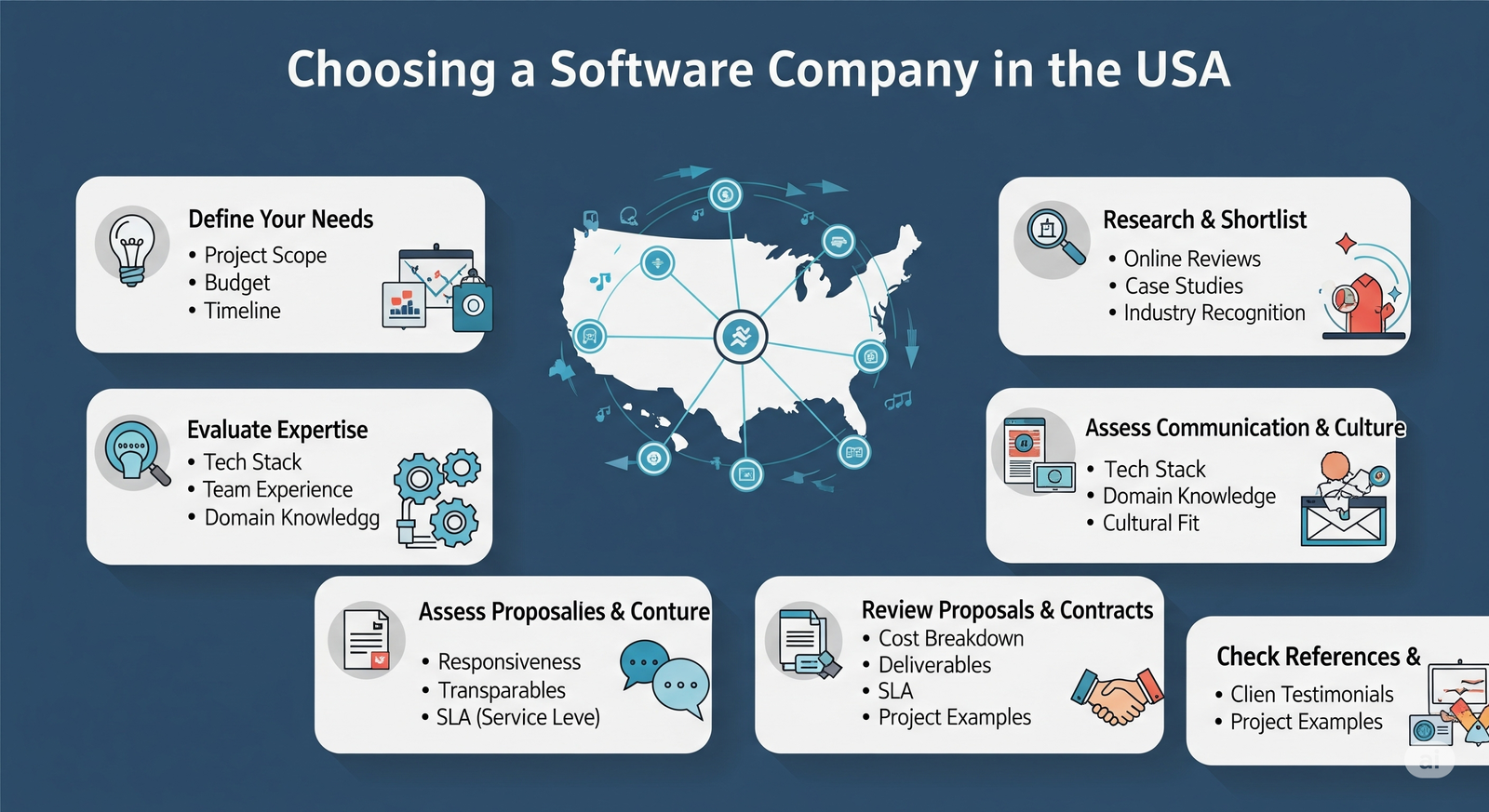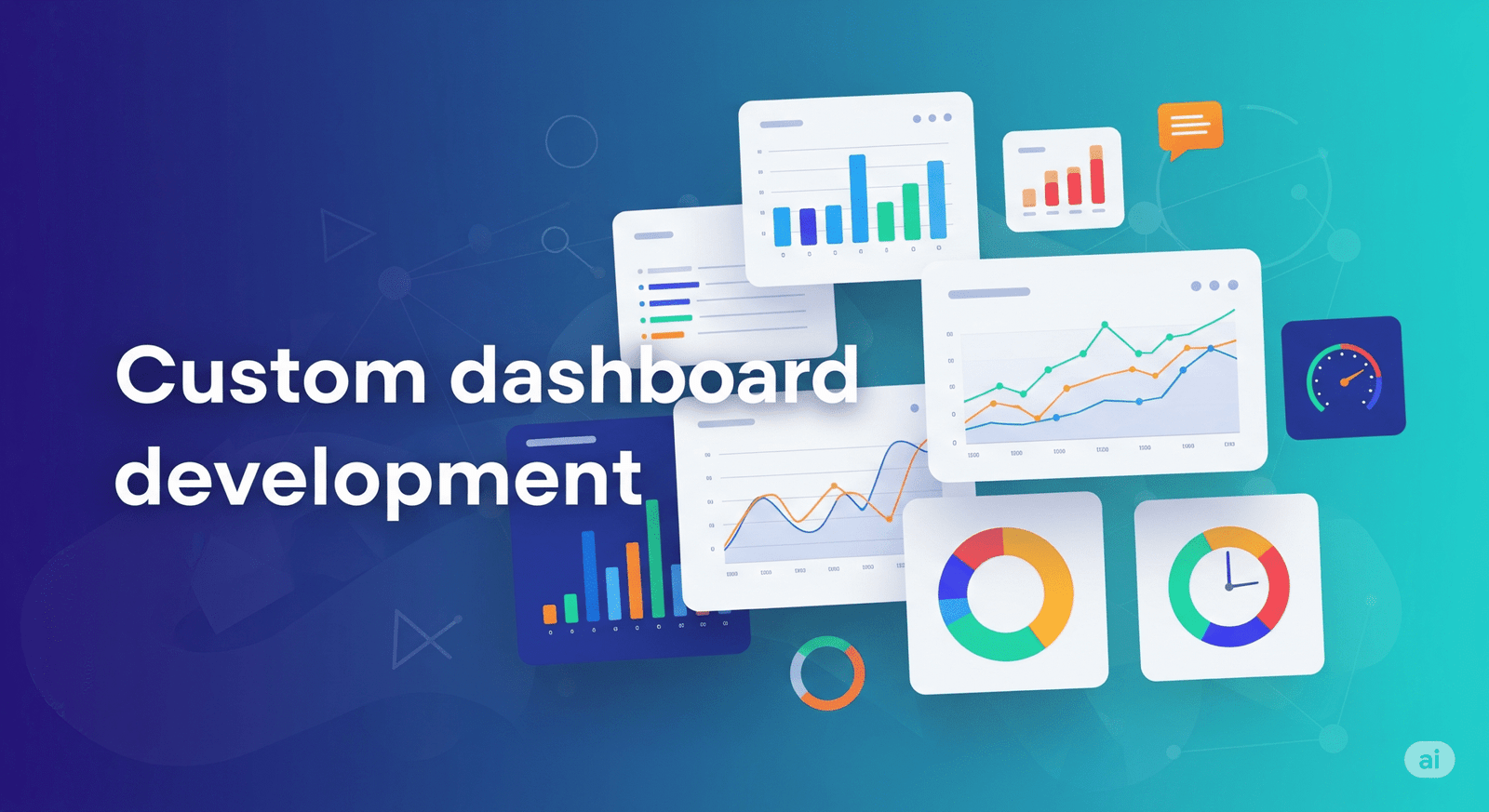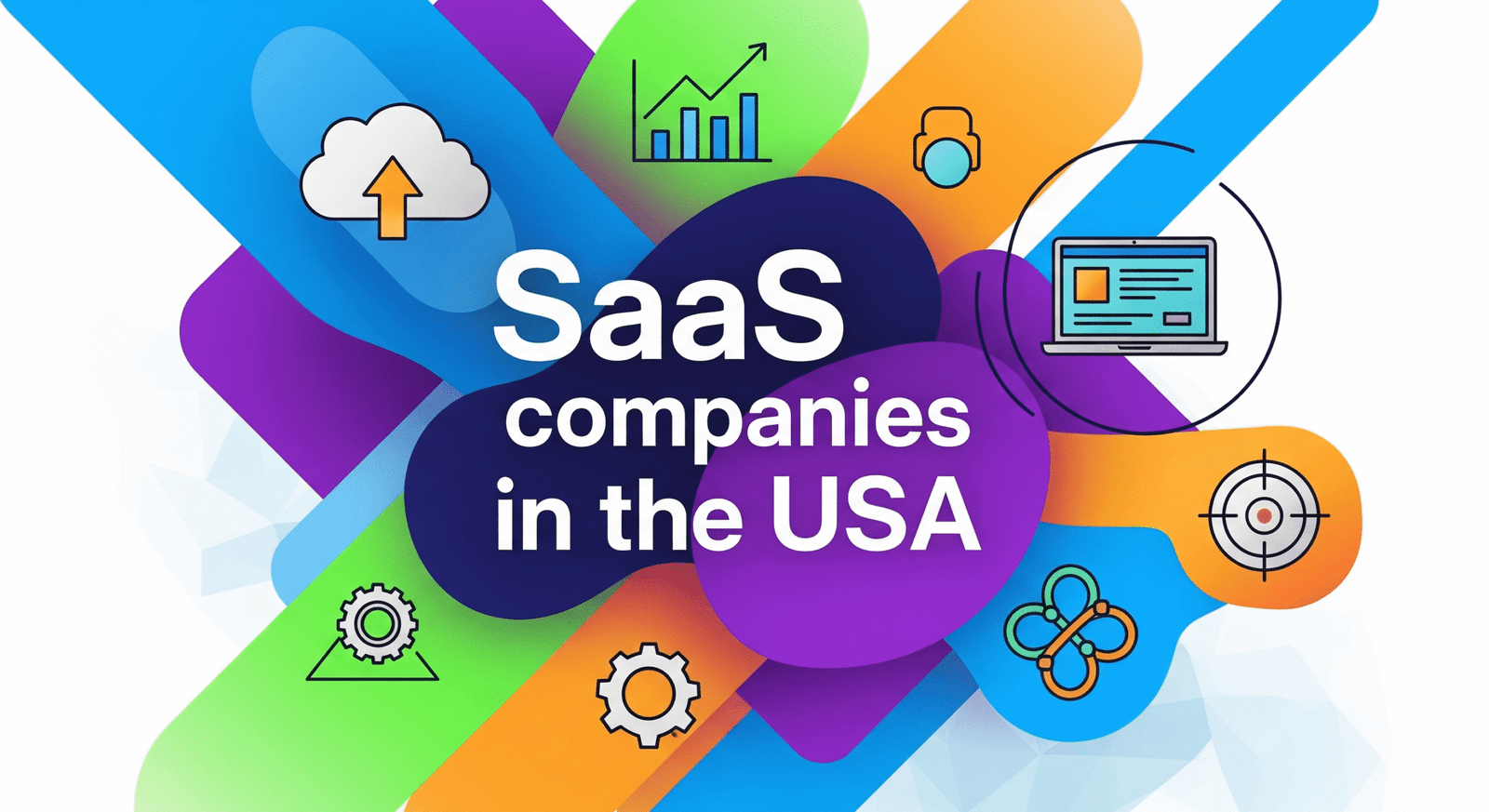Introduction: Why Choosing the Right Software Company Matters
If you’re a digital marketer, entrepreneur, or startup founder, chances are you’ve come across the need to build a website, app, CRM, or internal tool. The biggest challenge? Finding the right software company—especially in a crowded, competitive market like the USA.
From Silicon Valley to Miami, the U.S. is home to thousands of software development firms. Some specialize in custom app development, others in SaaS platforms, AI solutions, or enterprise systems. But not all are created equal.
Choosing the wrong team could cost you thousands—and months of delays. But the right company? It can accelerate your growth, product quality, and long-term success.
In this guide, we’ll walk you through the key things to know before hiring a U.S.-based software company, with real-world advice, examples, and expert tips.
1. What Is a Software Development Company?
Quick Definition
A software development company is a team or firm that builds, maintains, or enhances digital tools such as web apps, mobile apps, desktop software, APIs, and internal systems. These companies can provide end-to-end solutions—from idea validation and UX design to full-scale product launches and ongoing support.
Types of Software Companies in the USA
- Custom Software Development Firms – Tailored solutions for specific business needs
- Mobile App Development Companies – Focused on Android/iOS app creation
- SaaS Product Builders – Experts in scalable, cloud-based applications
- Enterprise Solution Providers – Working with large corporations (e.g., finance, healthcare)
- AI & Machine Learning Specialists – Innovators using predictive models and automation
Primary Keywords: software company in USA, U.S. software development firms
LSI Keywords: custom software solutions, software vendors in America, app development agencies
2. How to Choose a Software Company in the USA: Step-by-Step
Step 1: Define Your Project Scope and Goals
Before hiring anyone, clearly outline what you need:
- Are you building a new product from scratch?
- Do you need to improve or scale an existing tool?
- What’s your budget and timeline?
This clarity will help you filter companies based on their expertise and fit.
Step 2: Research Potential Vendors
Search platforms like Clutch, GoodFirms, or UpCity. Review company portfolios, case studies, and industries served. Pay attention to:
- Their tech stack
- Client testimonials
- Types of projects completed
- Company size (team of 5 vs. 500+)
Step 3: Evaluate Communication & Collaboration
Ask about their development process (Agile, Scrum, Waterfall) and how they keep you in the loop. Transparency, responsiveness, and clarity are must-haves.
Step 4: Assess Technical Expertise
Do they work with your preferred technologies (e.g., React, Python, Node.js, AWS)? Can they build scalable, secure systems?
Step 5: Ask for a Pilot Project or Trial
Before committing to a large contract, test the waters. Many top firms are open to a small paid discovery phase or MVP sprint.
3. Key Benefits of Hiring a U.S.-Based Software Company
✅ Time Zone & Communication
Collaborating in the same time zone (or close) means faster feedback loops and real-time meetings.
✅ High Quality Standards
Many USA software development firms follow best practices in UX design, security, and performance—critical for long-term success.
✅ Legal Protection & Accountability
U.S. companies must comply with local laws, including IP rights and data privacy, giving you peace of mind.
✅ Market Understanding
If your target market is in North America, local developers will better understand consumer behavior, accessibility standards, and regulatory frameworks.
LSI Keywords: benefits of U.S. software companies, working with local dev teams, time zone alignment in software outsourcing
4. Expert Tips for Making the Right Choice
💡 Tip 1: Choose Specialists, Not Generalists
If you need a SaaS product, look for companies that have actually built SaaS platforms—not just websites or mobile games.
💡 Tip 2: Don’t Just Compare Prices
Cheap doesn’t mean better. Ask about code quality, deployment processes, QA procedures, and post-launch support.
💡 Tip 3: Look for Cultural Fit
You’re building a relationship, not just outsourcing a task. Values, communication style, and work ethic should align.
💡 Tip 4: Ask to Speak With Past Clients
A reputable firm will connect you with previous clients so you can hear real feedback—what went well, and what didn’t.
💡 Tip 5: Review the Contract Carefully
Ensure your contract covers:
- Source code ownership
- Milestone-based payments
- IP rights
- Support & maintenance policies
5. Real Story: How One Founder Picked the Right Software Partner
Meet Lisa – A SaaS Founder in Chicago
Lisa was launching a project management tool for marketing agencies. After speaking with 6 different vendors, she chose a mid-sized U.S. firm based in Austin. Why?
“They weren’t the cheapest, but they understood my audience, asked smart questions, and delivered a clickable prototype in two weeks. That told me everything.”
Within 6 months, Lisa launched her MVP, raised seed funding, and scaled to 1,200+ users—all with the support of her U.S.-based dev partner.
Takeaway: The right company adds more value than just code—they become part of your startup journey.
6. Let’s Hear From You – Real Reader Interaction
👀 Are you currently comparing software companies?
🤔 Have you worked with one before—good or bad experience?
📌 What features or services are most important to you right now?
Share your story in the comments or send us your question—we’d love to offer personalized advice. We might even feature your experience in a future post (with permission)!
Conclusion: Make the Smart Choice for Long-Term Success
Choosing a software company in the USA isn’t just a technical decision—it’s a business strategy. The right team can turn your idea into a scalable product, while the wrong choice can lead to costly setbacks.
Start with clear goals, research thoroughly, talk to previous clients, and don’t rush. Your software partner should be as committed to your success as you are.


